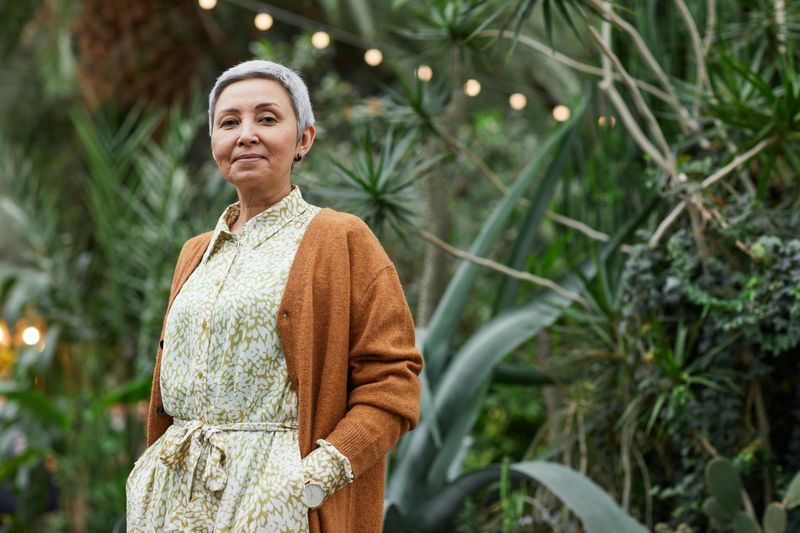13 Outdated Stereotypes About Single Women That Need to Go

Society has long held certain ideas about single women that simply don’t match reality. These outdated stereotypes can be harmful, making women feel judged for their relationship status rather than celebrated for who they are. It’s time we recognize these misconceptions for what they are – baseless assumptions that fail to capture the rich, diverse lives of single women today.
1. She’s Unhappy or Miserable

Freedom and fulfillment come in many forms, yet single women are constantly asked, “Don’t you get lonely?” The reality couldn’t be further from this tired assumption.
Many single women build rich lives filled with deep friendships, rewarding careers, personal growth, and exciting adventures. They enjoy the freedom to make decisions without compromise and develop strong self-reliance.
Research actually shows that single women often maintain stronger social connections than their married counterparts. Being relationship-free doesn’t mean being connection-free – it simply means creating meaning and joy on one’s own terms.
2. She’s Desperate for a Partner

Movies and TV shows love portraying single women as frantically swiping on dating apps or crying into wine glasses. This harmful image suggests women exist in a constant state of partner-hunting.
Reality paints a different picture. Most single women pursue relationships when it feels right, not out of desperation. Many actively choose singlehood to focus on personal goals, heal from past relationships, or simply because they enjoy independence.
A woman without a partner isn’t automatically searching for one. She might be perfectly content with casual dating, focusing on friendships, or embracing solitude – all valid choices that deserve respect, not pity or assumptions.
3. She Can’t Be Happy Without Kids

The motherhood mandate still looms large in our culture. Single women without children often face intrusive questions about their “biological clock” or warnings they’ll “regret” their choices later.
Countless women are deliberately choosing child-free lives focused on career advancement, travel, creative pursuits, or simply freedom from parenting responsibilities. Others may want children eventually but aren’t rushing this major life decision.
Fulfillment comes in countless forms beyond motherhood – through meaningful work, community involvement, nurturing relationships with nieces and nephews, or mentoring young people. A woman’s value and happiness never depend on whether she produces offspring.
4. She’s Too Picky

“You’ll never find someone if you keep being so choosy!” Single women hear this criticism constantly, as if having standards is somehow a character flaw rather than healthy self-respect.
Women who maintain boundaries and expectations aren’t being unreasonable – they’re honoring themselves. After generations of women settling for subpar relationships, today’s singles often recognize that no relationship is better than a bad one.
Having clear dealbreakers about values, treatment, and life goals isn’t pickiness – it’s wisdom. Rather than criticizing single women for their standards, perhaps we should question why some people think women should lower their expectations just to avoid being alone.
5. She’s Career-Obsessed

The successful woman often gets labeled as “married to her job” – as if professional achievement must come at the expense of a personal life. This one-dimensional view fails to see women as whole people with varied interests.
Career success doesn’t mean a woman has sacrificed everything else. Many single women excel professionally while maintaining vibrant social lives, pursuing hobbies, volunteering, traveling, and nurturing important relationships.
The truth is that single women often have the flexibility to build multifaceted lives. Instead of assuming a career-focused woman has made a sacrifice, consider that she might simply be living exactly the life she wants – complete with professional satisfaction and personal fulfillment.
6. She’s Intimidating

Strong, independent women often get slapped with the “intimidating” label – a backhanded compliment that suggests their confidence somehow makes them less approachable or desirable. This stereotype puts women in an impossible position.
Confidence is not the same as aggression. Intelligence is not arrogance. Success is not a character flaw. Yet single women who embody these qualities are often told to tone themselves down to appear more appealing.
The problem isn’t with confident women; it’s with a society uncomfortable with female strength. Rather than labeling self-assured women as “intimidating,” we should celebrate their empowerment and recognize that true compatibility comes from mutual respect, not from one person dimming their light.
7. She’s Waiting to Be Rescued

Fairy tales taught us that a princess waits in her tower until Prince Charming arrives to save her. Unfortunately, this damsel-in-distress narrative still colors how we view single women today.
Modern single women aren’t sitting around waiting for rescue – they’re building lives they love. They fix their own leaky faucets, manage their finances, make major life decisions, and solve their own problems. Many women choose partnership eventually, but from a place of wanting, not needing.
The rescue fantasy doesn’t just hurt women; it places unfair pressure on potential partners too. Healthy relationships form between two whole people coming together by choice, not from one person completing or saving the other.
8. She’s Socially Awkward or Difficult

When someone remains single longer than expected, others often assume something must be “wrong” with them. The whispers begin: “She must be impossible to get along with” or “She probably doesn’t know how to compromise.”
This harmful stereotype ignores that many women choose singlehood precisely because they have excellent relationship skills. They understand their own needs, communicate boundaries clearly, and refuse to accept poor treatment – all signs of emotional intelligence, not social deficiency.
Being selective about romantic partnerships doesn’t mean a woman struggles with relationships generally. Many single women maintain deep friendships, close family ties, and positive work relationships, demonstrating their capacity for meaningful connection in multiple areas of life.
9. She’s Past Her Prime

Once a woman passes 30, she’s often viewed as somehow diminished, having missed her window for partnership.
This toxic idea ignores how women often grow more confident, self-aware, and interesting with age. Many women find their most fulfilling relationships later in life precisely because they know themselves better and won’t tolerate treatment they might have accepted in their younger years.
Women don’t peak and decline – they evolve and grow. A woman’s worth never expires, and her potential for love, growth, and new beginnings remains open throughout her entire life journey. Age brings wisdom, not diminishment.
10. She’s Reckless or Irresponsible

Pop culture loves depicting single women as chaotic party girls who can’t manage basic adulting. From financial irresponsibility to emotional immaturity, this stereotype suggests unmarried women exist in a perpetual state of adolescence.
Statistics tell a different story. Single women buy homes, build retirement accounts, and often manage their finances more carefully than their coupled peers. Many create stable, structured lives filled with routine, responsibility, and careful planning.
Without the safety net of a partner’s income or shared expenses, many single women develop exceptional self-reliance and responsibility. Far from being reckless, they often must be more disciplined with planning and resources precisely because they’re navigating life independently.
11. She’s a Threat to Married Couples

The suspicious glance from a wife when her husband mentions his single female colleague. The hesitation to invite the unmarried friend to the couples’ dinner party. These scenarios reflect the persistent myth that single women are somehow threats to established relationships.
This stereotype is both insulting and illogical. It assumes single women lack morals and boundaries, while also suggesting marriages are so fragile they can’t withstand normal social interaction.
Most single women respect relationship boundaries completely and have zero interest in pursuing someone else’s partner. This harmful stereotype mainly serves to isolate single women from social circles and perpetuates the false narrative that women are naturally in competition with each other.
12. She Must Be High-Maintenance

“She’s single because she expects too much” – this criticism gets aimed at women who simply know their worth. The high-maintenance label often gets slapped on women with normal expectations for respect, effort, and emotional maturity.
What’s often labeled as “demanding” behavior from single women would be considered basic self-respect in other contexts. Wanting clear communication, thoughtfulness, and reciprocal effort doesn’t make someone difficult – it makes them self-aware.
The real issue isn’t women’s supposedly excessive standards but rather society’s persistent belief that women should be grateful for any attention. A woman who refuses to accept crumbs isn’t high-maintenance – she simply understands her value and won’t apologize for expecting to be treated accordingly.
13. She’ll Eventually “Grow Out of It”

“You just haven’t met the right person yet.” This patronizing statement treats singlehood as a temporary condition or phase rather than a legitimate life choice. It assumes every woman secretly yearns for conventional partnership despite what she might say.
For many women, being single isn’t something to outgrow – it’s a conscious, ongoing choice that aligns with their authentic selves. Some women discover they thrive with independence after trying relationships. Others recognize from early on that traditional partnership doesn’t fit their personality or goals.
Treating singlehood as immature or incomplete undermines women’s agency in crafting their own life stories. A woman’s relationship status should be respected as her choice, whether temporary or permanent, rather than dismissed as a phase she’ll eventually abandon.

Comments
Loading…